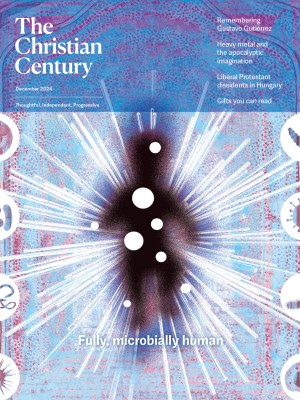December 22, Advent 4C (Micah 5:2-5a; Luke 1:46b-55)
Is Matthew so embarrassed by Bethlehem’s lowly status in Micah that he feels the need to punch it up a little?
Last year, my church shifted to observing Advent over seven weeks rather than four. This move, inspired in part by the work of the Advent Project Seminar, pushes up the start of the season to coincide with the eschatological turn the lectionary takes after All Saints’ Day. Extending Advent—without changing any of the assigned readings—helps us (we hope!) reorient our focus within the season toward the yet-to-come full manifestation of God’s reign in the second coming, rather than treating Advent as merely preparation for our yearly commemoration of the first coming in the incarnation.
Nowhere is this shift in focus more fruitful than when we eventually get to the Old Testament prophetic texts assigned for the (original four) Sundays of Advent. Instead of reading these prophetic texts as neat predictions of the coming of Jesus of Nazareth, we might consider each on its own merits, as a word of hope or judgment spoken to an ancient people in a season of disorientation, turmoil, or despair.
Read our latest issue or browse back issues.
This week’s reading from Micah envisions an ideal king who will arise to govern God’s people and to oversee their return from exile. Several things about this king, however, defy our usual human notions of kingship. He shall be known throughout the land as “the one of peace,” not conquest. Rather than being pictured with a raised sword or fist and a gaze focused on the horizon, his kingly posture is one of open-handed provision, focused on the needs of the lambs in his care. Perhaps most striking of all: he will come not from the geographic power center of Jerusalem, but rather from the backwater town of Bethlehem, which Micah describes as one of the “little ones” among the clans of Judah. In The Message, Eugene Peterson paraphrases Micah as calling Bethlehem “the runt of the litter.”
It’s this detail—the messianic king’s surprising origins in Bethlehem—that Matthew picks up on, of course, in the Epiphany story that we’ll read soon. When the Magi come to King Herod in Jerusalem, looking for the child king whose star they have seen at its rising, Herod’s court religionists are there with the surprising news: Believe it or not, according to Micah, the king will come from . . . Bethlehem!
The attentive reader will notice here a discrepancy between Micah and Matthew—one that I, as the youngest child in a large family, am fascinated by. Micah’s prophecy describes Bethlehem as “one of the little clans of Judah.” But when Matthew quotes Micah, on the lips of Herod’s court officials, Bethlehem becomes one that is “by no means least among the clans of Judah.” Is Matthew so embarrassed by Bethlehem’s status that he feels the need to punch it up a little? Or is it the court officials that give Bethlehem its promotion in translation? (In The Message, Bethlehem becomes, in Matthew, the clan that is “no longer bringing up the rear.”)
Micah’s prophecy, in its description of the ruler who is to come, speaks a word of hope to his hearers by recalling one of God’s most persistent patterns: taking the least, the last, and the lowly and using them to reveal the fullness of the kingdom of God. It happens with David—the Bethlehem-born, baby-brother shepherd who slays a giant on his way to the throne. It happens with Joseph—the baby brother sold into slavery who eventually finds his way to the position of the king’s right-hand man. It happens with Moses—the baby in a basket turned murderer on the lam who gets raised up to lead God’s people out of slavery.
With this rich history in mind, we can appreciate the broader point that these lections for the final Sunday of Advent come together to remind us: that the unlikely, lowly choice of Mary as Godbearer, and of Bethlehem as the messianic birthing ward, is entirely consistent with how God works. In her Magnificat, Mary describes this pattern much more concisely and poetically than I’ve described it here:
He has looked with favor on the lowliness of his servant. . . .
He has scattered the proud . . . and lifted up the lowly. . . .
According to the promise he made to our ancestors,
to Abraham and to his descendants forever.
And so we celebrate the holy mystery of the pattern, as it continues to unfold before and beyond us: throughout our salvation history, in the time and person of Jesus, even in our present reality, if we can muster the courage to see it. And yes, in the yet to come of the full manifestation of God’s reign, which we eagerly anticipate in Advent and always.





